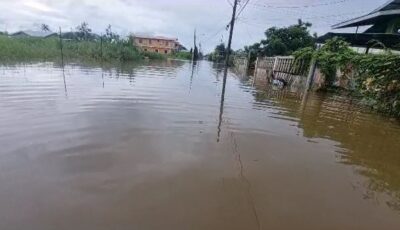HEADLINES
Commentary
Rowley strenuously objected to the construction of Penal-Debe UWI Campus
The media is reporting that the UWI Penal-Debe Campus, built during the People’s Partnership Administration continues to sit empty and has never
Posted On 30 Oct 2023
Blighted WGTL Project continues to haunt PNM
That World Gas-to-Liquids project is another of the many PNM scandals and failed projects which has cost taxpayers billions of dollars! And it is
Posted On 22 Jun 2023
Who financing Balisier House?
Ferdinand Ferreira, a founding member of the People’s National Movement (PNM), is quoted in the media as saying that the party has always
Posted On 03 Apr 2023
UNC SENATORS DEFENDED THE PARTY WELL TODAY
Today, the Opposition UNC Senators defended themselves and the Party well from the frivolous, anti-democratic motion by Senator Anthony Viera.
Posted On 22 Feb 2022
COVID WORKERS FIGHTING A WAR WITHOUT THEIR PROPER WEAPONS
We congratulate Kamla Persad-Bissessar on her success in forcing the Government to conduct an inquiry into the handling of covid. We take this
Posted On 20 Feb 2022
Letters
For fools rush in where angels fear to tread
The National Security Minister’s recent unrestrained language and conduct towards judges and unjustified criticisms of their judicial functions
Posted On 14 May 2023
Seek a fresh mandate
I recently read in one of the daily newspapers that Minister of National Security Fitzgerald Hinds said that 70% of society wants to see him
Posted On 27 Dec 2022
Don’t Blame God for Rowley’s Dotishness
Prime Minister Keith Rowley at the PNM convention on December 4, 2022, announces a National Day of Prayer. He said the country must come together
Posted On 16 Dec 2022
Keith Rowley has betrayed the sanctity of Parliament
Dear Editor, The revelation by the Commissioner of Police that the emails which Keith Rowley, then Opposition Leader read in our nations
Posted On 19 Jul 2019
T&T owes Kamla a debt of gratitude
Kamla Persad-Bissessar did what many were not expecting… she and her MPs voted unanimously with the Government to ensure passage of the Civil
Posted On 09 Apr 2019
Press Releases
Tancoo: Flooding imminent as Government fails to act
After a couple days of scattered “April showers” earlier this week, MP for Oropouche West, Dave Tancoo is again warning that severe flooding in
Posted On 06 Apr 2024
MP Khadijah Ameen wants justice for Kiss Driver’s death
Member of Parliament for St. Augustine, Ms. Khadijah Ameen is calling for justice for the death of Kiss delivery driver, Neil Ballai. Ballai was
Posted On 06 Apr 2024
UNC’s Persistent Pressure Forces Rowley Gov’t to Release 2024 EBC Report
On the heels of intense, consistent pressure from the UNC over their highly questionable refusal to lay the 2024 EBC Boundaries Report in
Posted On 06 Apr 2024
Moonilal: Hinds Fails Fire Service, Lives at Risk as Equipment Crumbles
The collapse of the Trinidad and Tobago Fire Services is another crushing indictment on the spectacularly failed Fitzgerald Hinds as Minister of
Posted On 05 Apr 2024
Padarath: Gov’t Electricity Rate Hike “Unbearable Burden”
Princes Town MP, Barry Padarath said that the contents of a report in yesterday’s Business Guardian headlined “RIC Recommends
Posted On 05 Apr 2024
Speeches
Tancoo: calls on Imbert to have a heart and indemnify the population
Today we come to you to shine some light on a very worrying development that has happened in the past few days. I am sure many of you saw or
Posted On 08 Sep 2021
Rowley’s Mad Power Grab in Tobago
My friends, we are seeing a government that is in freefall – in every single sector. Health, National Security, the business sector. And what
Posted On 16 Feb 2021
Presentation of UNC general election candidates 2020
T&T family! UNC family! It is my absolute pleasure to speak with you today, as we get ready for the sweeping victory that is to come on
Posted On 19 Jul 2020
Kamla: My vision is to build an intelligent nation
“ON THE BALLOT” UNC VIRTUAL MEETING (June 25, 2020) Introduction Good evening and thank you for joining us once again as we continue to set the
Posted On 26 Jun 2020
MNF – Kamla: There is hope
Introduction Good evening T&T! Good evening UNC family! It is good to be back! 2020 we are ready to rumble! Are you ready? Even though it’s
Posted On 11 Mar 2020
Copyright © - 2023 United National Congress







RELAX THE TAX
Kevin Ramnarine.
By Kevin Ramnarine
The Ministry of Finance has signalled the re-introduction of Property Tax. Most of the population already know it’s the law, they know it’s not new and they know it obtains in other countries. However, it is debatable whether it is being re-introduced at the right time given the present state of the economy and the strains on the population.
The leadership of the Ministry of Finance must know that their role is not only to sit in the Eric Williams Finance Building and balance budget numbers. Their decisions must be based on an appreciation for the social and economic equilibrium in the country.
The nation is buckling under the weight of rising prices for groceries and medicine. Many families have unemployed university educated children who cannot find a job or have lost their jobs. The price of fuel has been increased multiple times in the last 20 months while the Minister of Finance poked fun that the population had not yet rioted. The Ministry of Finance is barrelling ahead with the implementation of this tax and in the process ramming it down the throats of the population.
The imposition of property tax on small and medium size businesses will push many of these businesses to the brink of bankruptcy and closure. Businessmen already have to pay more business levy and green fund levy. To survive they will have to send home workers or transfer the cost of property tax onto the customer. In addition, businessmen may see property tax as a disincentive to future investment. Why invest in new plant and equipment if you are going to be punished for investing?
One businessman in the energy services sector expressed his concern on my Facebook wall saying, “Having to pay more taxes on razor thin margins in this downturn is a terrible thing and as an entrepreneur that’s the same bullet hitting home as well.” One business chamber has cautioned the Government on the lack of clarity surrounding the process. They have asked for details on the valuation and implementation, particularly where it relates to uncovered plant, rigs, and machinery. What is the impact of property tax on companies with plants at Point Lisas?
There are many questions that arise. The Minister of Finance seems to be confused. At a post-Cabinet press conference on March 23, 2017, he declared that all systems were go. He announced that notices of assessment would be posted or hand-delivered to owners and occupiers in a few weeks.
So, the Ministry of Finance and its departments were ready to roll. In the draft estimates of revenue, under head 2 “Property Tax”, it shows that the Minister of Finance expected to collect $TT 500 million in fiscal 2017 compared to zero in 2016, zero in 2015 etc.
In light of the above, the Minister of Finance should explain when these taxes will be payable from given that he has said we should expect notice of assessment soon and he clearly expects to receive his taxes in 2017.
I say this because it cannot be that he expects these monies to be paid in 2017. Section 17 of the Property Tax Act of 2009 says the notice of assessment must be served on or before March 31st. Since March 31st, 2017 is gone, it means that the notice of assessment can only be next served on or before March 31st, 2018 which means payments will commence in 2018.
The notice of assessment can only be served if the Commissioner of Valuations has received “returns” in accordance with Section 6 of the Valuation of Land Act. These returns will inform the valuation which determines the annual rental value. So, just like his colleague Minister Garcia, Minister Imbert is jumping the gun.
The other issue is the capacity of the various institutions to administer this new regime. Is the valuation department of the Ministry of Finance adequately resourced? Is the Board of Inland Revenue adequately resourced? Is the Tax Appeal Board adequately resourced? Are the various district revenue offices adequately resourced? I’m sure the answer to these questions is “no”.
How will citizens pay this tax? Will they have to stand in long lines and suffer for hours? In Jamaica, property tax payments can be made online. Have arrangements been made for online payments in T&T? What about the elderly? What about those living abroad? Questions abound.
Citizens are also highly sceptical that their property taxes will result in improved public services. Citizens have questioned the valuation process and its vulnerability to bias and corruption. Some say that we already have to pay the onerous stamp duty when acquiring property. The long list of documents the Commissioner of Valuations requires will add more stress to the population.
I have heard that the property tax, in its original conception, was aimed at the energy sector moreso companies that operate in Point Lisas and Atlantic. I would love to see how the Commissioner of Valuations determines the value of an ammonia plant or an LNG train.
The Government should pause and think through the implementation of this tax so they minimize the stress it can cause the already stressed population. Mr. Minister, relax the tax.
Guardian April 25 2017
Share this:
Like this:
Why we have a natural gas shortage
Against Excessive Taxation
Commentary
Rowley strenuously objected to the construction of Penal-Debe UWI Campus
Blighted WGTL Project continues to haunt PNM
Who financing Balisier House?
UNC SENATORS DEFENDED THE PARTY WELL TODAY
COVID WORKERS FIGHTING A WAR WITHOUT THEIR PROPER WEAPONS